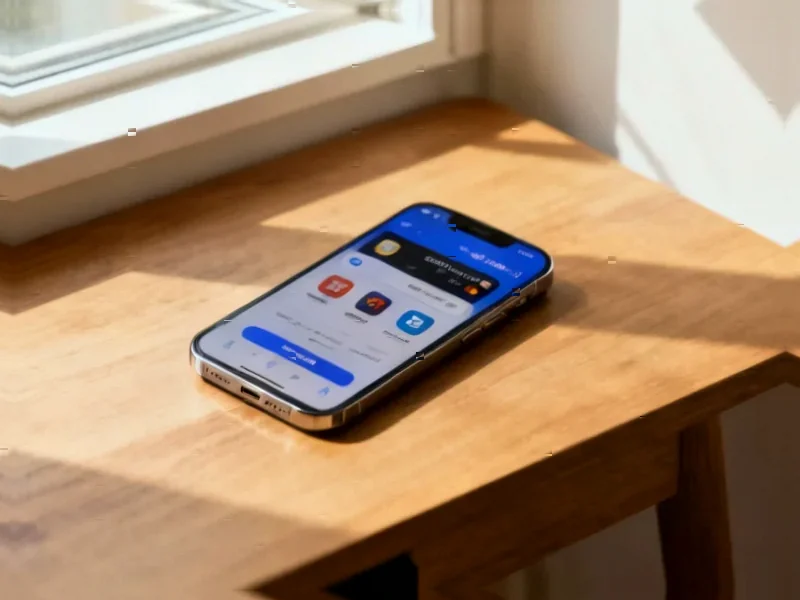According to TechSpot, Google and Epic Games have reached a settlement that fundamentally reshapes Android’s app ecosystem through June 2032. The deal creates a “Registered App Store” program allowing third-party stores to install with one click, treated as first-class citizens with full update capabilities. Developers gain flexibility to implement alternative billing systems with service fees potentially dropping to as low as 9% compared to the traditional 15-30% range. The settlement maintains restrictions from Judge James Donato’s 2024 injunction prohibiting exclusivity deals favoring the Play Store, and Epic CEO Tim Sweeney called the outcome “awesome” while Google’s Android president Sameer Samat emphasized user safety priorities.
<h2 id="android-ecosystem-shift”>The end of Google’s walled garden
This settlement basically blows open the doors to Android in ways we haven’t seen since the platform launched. For years, Google maintained this delicate balance – technically Android was “open” because you could sideload apps, but they made the process so scary with security warnings that most users never bothered. Now? Third-party stores get equal billing. They can handle automatic updates. Phone makers can preinstall them without losing Android certification.
Think about what that means. We could see phones shipping with multiple app stores right out of the box. Samsung might include its Galaxy Store alongside Google Play, or carriers might push their own marketplaces. The whole “Android equals Google Play” equation that’s dominated mobile for over a decade is about to get rewritten.
A developer’s dream come true
Here’s where things get really interesting for app makers. That 9% fee potential is massive. When you’re talking about games or subscription services pulling in millions, saving 6-21% on every transaction is life-changing money. And developers now have the option to pass those savings directly to consumers through lower prices if they use alternative payment systems.
But wait – there’s a catch. Epic fought this battle partly so they could avoid paying Google anything, and now they’re settling for a system where Google still gets a cut? It makes you wonder if the economics actually work better for everyone this way. Google maintains some revenue stream while developers get relief, and consumers get more choice. Maybe this is the compromise that should have happened years ago.
The really long game
June 2032. Let that sink in. This settlement runs for nearly eight years, which in tech time might as well be forever. Most antitrust remedies last maybe three years – this one stretches through multiple product cycles and potentially an entire generation of mobile development.
Google’s basically locked into this open ecosystem through what could be the most transformative period in mobile since smartphones replaced feature phones. By the time this deal expires, we might be talking about whatever comes after smartphones. And that’s probably exactly what Epic wanted – enough time for alternative stores to become normalized rather than niche.
What changes for users?
For regular Android users, the experience could become both more confusing and more empowering. Suddenly you might have multiple places to get apps, each with different pricing, different features, maybe even exclusive titles. It’s like going from having one Walmart in town to having a whole shopping district with specialty stores.
The big question is whether Google’s security warnings about sideloading will disappear entirely or just get toned down. If they’re truly presenting third-party stores with “neutral language” as reported, that’s a huge shift. But let’s be real – Google will probably still find ways to gently steer users toward their own store. They didn’t become a trillion-dollar company by being shy about protecting their turf.
One thing’s for sure: the days of Google completely controlling Android’s app economy are over. And honestly? It’s about time.




